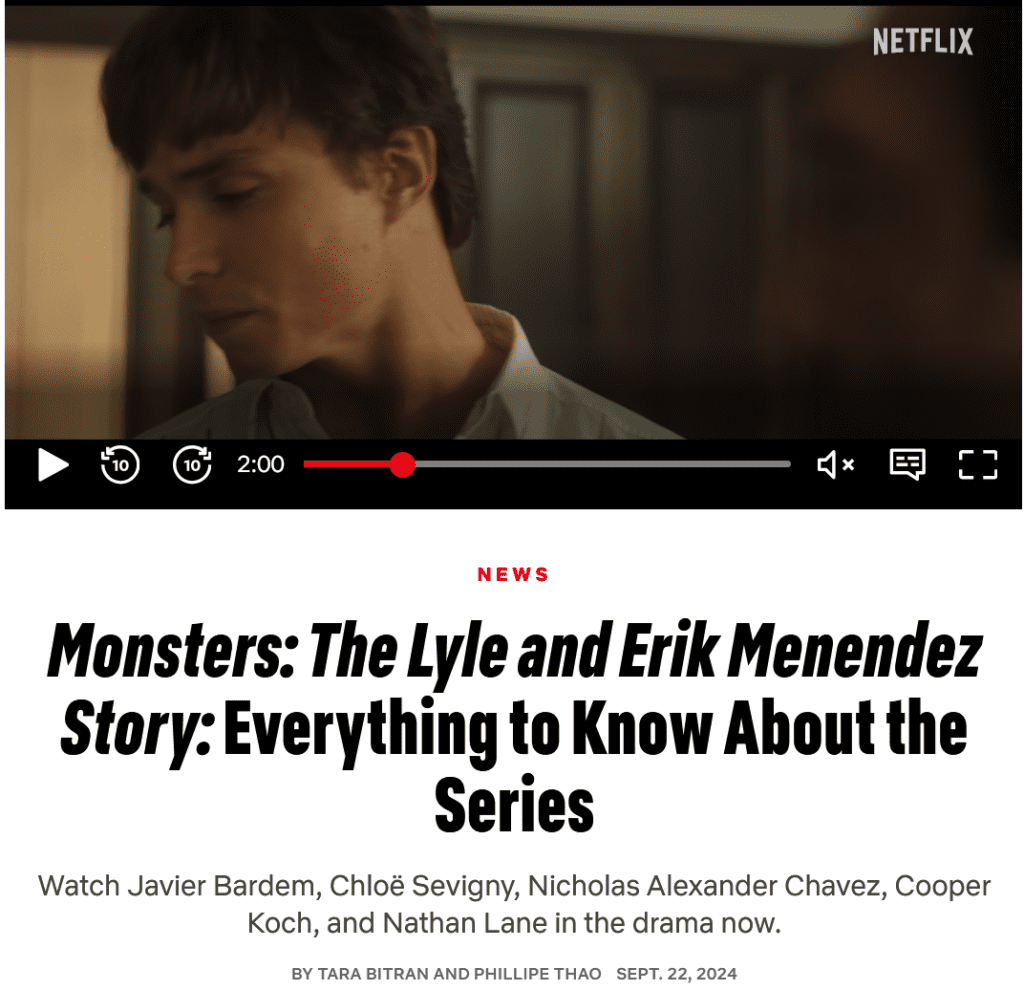In 1989, Erik Menendez and Lyle Menendez shocked the nation by brutally murdering their parents, José Menendez and Kitty Menendez, in their Beverly Hills home. Convicted in 1996, the brothers were sentenced to life imprisonment without the possibility of parole. Their case, once a symbol of cold-blooded patricide, has been thrust back into the spotlight, thanks to Netflix‘s recent series, “Monsters: The Lyle and Erik Menendez Story.“
The Netflix Effect: Rewriting Narratives

Netflix’s dramatization has reignited public interest, casting the brothers in a more sympathetic light. The series delves into allegations of severe abuse by their father, José Menendez, suggesting that the murders were acts of desperation rather than greed. This portrayal has led to a surge in public support for the brothers, with many advocating for their release. Notably, celebrities like Kim Kardashian have joined the chorus, calling for a reevaluation of their sentences.
Legal Repercussions: A System Swayed by Streaming?
The renewed attention has not gone unnoticed by the legal system. Outgoing Los Angeles District Attorney George Gascón, perhaps sensing the shifting tides of public opinion, announced his recommendation to resentence the Menendez brothers. He proposed reducing their sentences to 50 years to life, making them eligible for parole. Gascón’s decision, coming just before his departure from office, raises questions about the influence of media on judicial proceedings.
The incoming District Attorney, Nathan Hochman, has expressed skepticism about the Netflix series, advising the public to reserve judgment. He emphasized the importance of basing decisions on comprehensive case facts rather than dramatized portrayals. Hochman’s stance suggests a potential shift in the handling of the case under his administration.
Public Sentiment: From Villains to Victims?
The series has undeniably shifted public perception. Once vilified as cold-blooded killers, the Menendez brothers are now seen by many as victims of a dysfunctional and abusive household. This transformation in narrative has led to widespread calls for their release, with petitions and social media campaigns gaining momentum.
The Power of Streaming: Shaping Justice or Distorting Truth?
The Menendez case exemplifies the profound impact streaming platforms can have on public opinion and, by extension, the legal system. While these platforms have the power to shed light on potential miscarriages of justice, they also risk oversimplifying complex cases for entertainment value. The line between factual representation and dramatization becomes blurred, leading to potential biases in public perception.
A Conspiracy of Influence?
One might ponder whether the timing of the series and the subsequent legal developments are mere coincidence or part of a broader strategy. Could it be that media conglomerates, in collaboration with legal entities, are orchestrating narratives to sway public opinion and influence judicial outcomes? While this remains speculative, the intertwining of media portrayal and legal action in the Menendez case is undeniable.
Conclusion: A Precedent in the Making
As the Menendez brothers await their resentencing hearing, scheduled for January 30-31, 2025, the case stands as a testament to the evolving dynamics between media, public opinion, and the legal system. It prompts a critical examination of how narratives are constructed and the extent to which they should influence justice. In an era where streaming platforms hold significant sway, the Menendez case may well set a precedent for future legal proceedings influenced by media portrayals.





